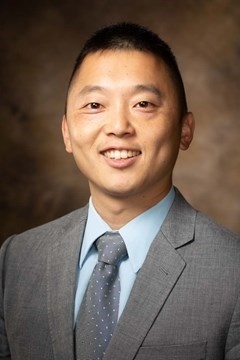Albert Cheng, an assistant professor in the Department of Education Reform at the University of Arkansas, was up at 1 a.m. on Wednesday, presenting a webinar from his university office to an audience in Australia.
Cheng, a senior fellow at Cardus Education — a non-partisan, faith-based think tank — was part of a research team that explored how schools have shaped millennials, focusing on their contribution to Australian society. Cheng and fellow Cardus researchers shared landmark findings from a newly-published report Australian Schools and the Common Good this week.
The Cardus Education Survey Australia Project represents the first time a Cardus Education Survey has taken place outside North America, following three American and three Canadian studies since 2009. The study explored how Australian schools, in partnership with the family and community, have shaped millennials as adults.
The project explored the responses of nearly 5,000 millennial graduates, ages 25-39, from a nationally representative sample of government, Catholic, independent and Christian schools.
Questions revolved around civic involvement, whether the students give or volunteer in their community and whether schools prepared them for social responsibility and meaningful contributions to culture — not just academic and career success.
Australian schools followed the North American pattern in student development, though there were some unique differences too, Cheng said.
A few of the major survey findings include:
- A majority of graduates from all four sectors agreed that their schools emphasized academic excellence, leadership, interaction with society and culture, and character development. Christian (80%) and Catholic (87%) school graduates were more likely to report an emphasis on religious values compared to public (21%) and independent (65%) school graduates. Christian school graduates were also most likely to feel their school prepared them to find a sense of meaning and purpose in life (74%).
- Catholic school graduates had the highest annual household incomes, while independent school graduates completed the highest levels of post-secondary school qualifications. Across all sectors, graduates from urban areas were more likely to complete bachelor's degrees, be employed, and earn more compared to those living in rural areas - though these gaps were less pronounced among public school graduates.
- Three out of every five graduates from all school sectors donated money to charity. Volunteering was less common, practiced by one third of graduates, but independent (40%) and Christian school graduates (48%) were more likely to volunteer in a variety of organizations such as those that care for the poor or environment.
"A decade's worth of Cardus research in the U.S. and Canada has shown that schools have a vital role to play, alongside families and community, in building character, leadership, and the qualities in students that see them hopefully contribute to the overall common good of society," Cheng said. "Now we're seeing similar findings in this groundbreaking research in Australia. We hope our research will stimulate meaningful conversation about the purpose of education in North America, Australia, and globally."
The Cardus Education Survey is the only study that uses repeated measures to report on the outcome of religious non-government schooling and compares it to public school outcomes. It's recognized as one of the most comprehensive and valuable surveys of its kind among school practitioners, leaders and policy-makers.
Full findings from Australian Schools and the Common Good, including family formation, group and association involvement, religious engagement, and social connectedness are available at carduseducationsurvey.com.au.
Cheng, who has a doctorate in education policy, teaches courses on the history and philosophy of education as well as education policy analysis at the U of A in the College of Education and Health Professions. Known for his research on character formation, school choice policy, faith-based schooling, and homeschooling, he serves on the editorial board for the International Journal of Christianity and Education. He is also a research affiliate with Charassein: The Character Assessment Initiative at the University of Arkansas and the Program on Education Policy and Governance at Harvard University.
Topics
Contacts
Shannon G. Magsam, director of communications
College of Education and Health Professions
479-575-3138, magsam@uark.edu
